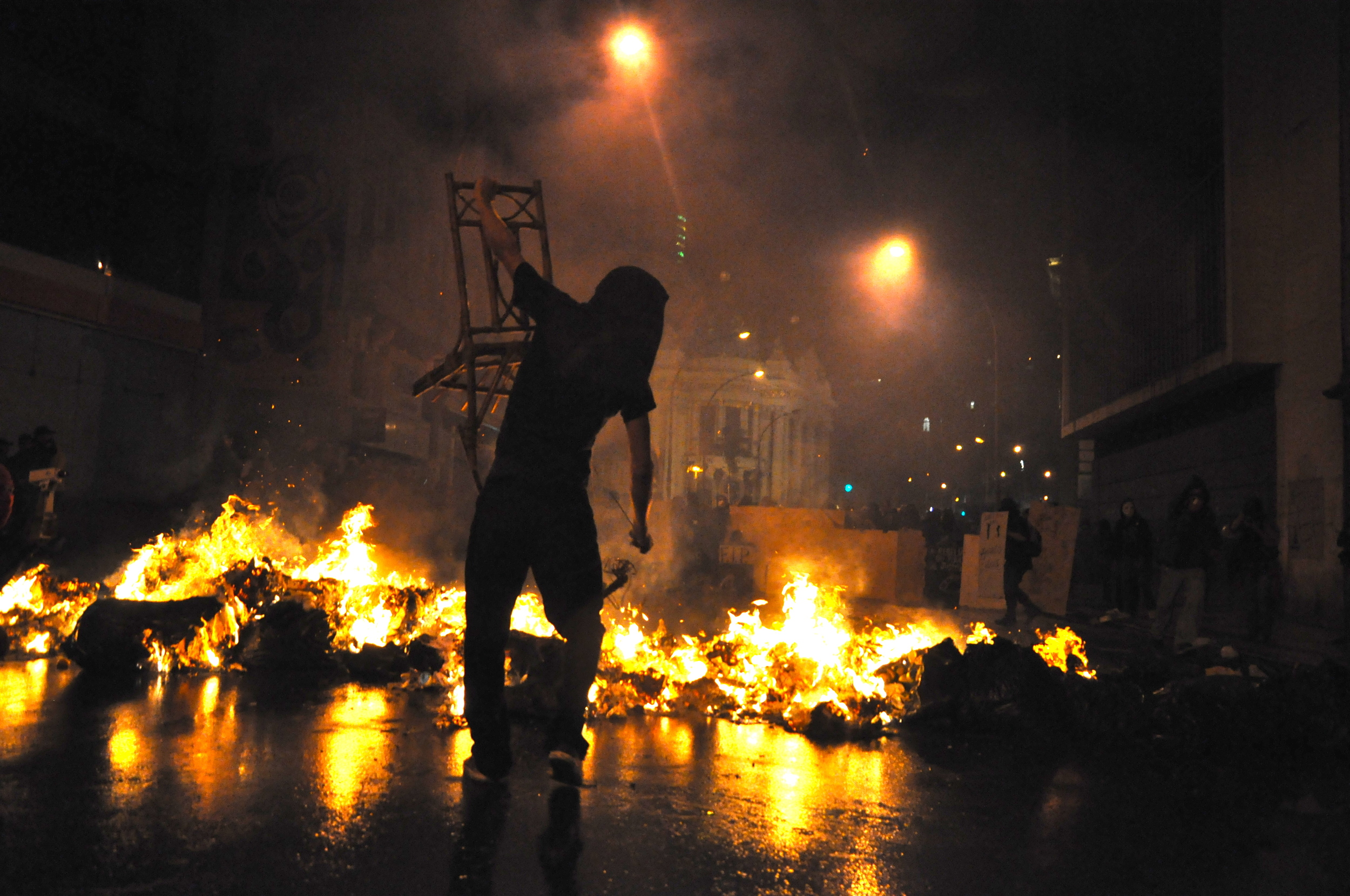














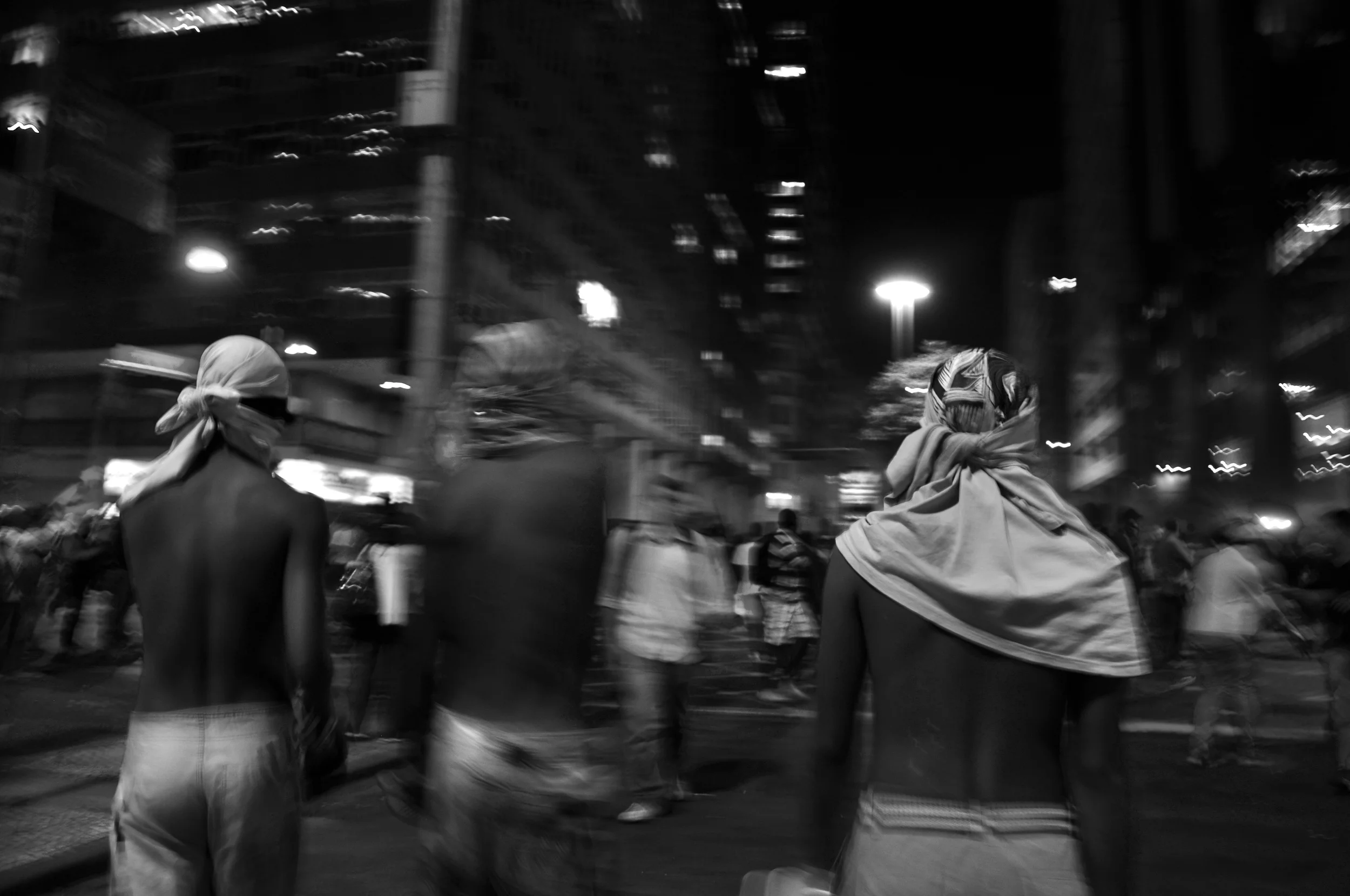
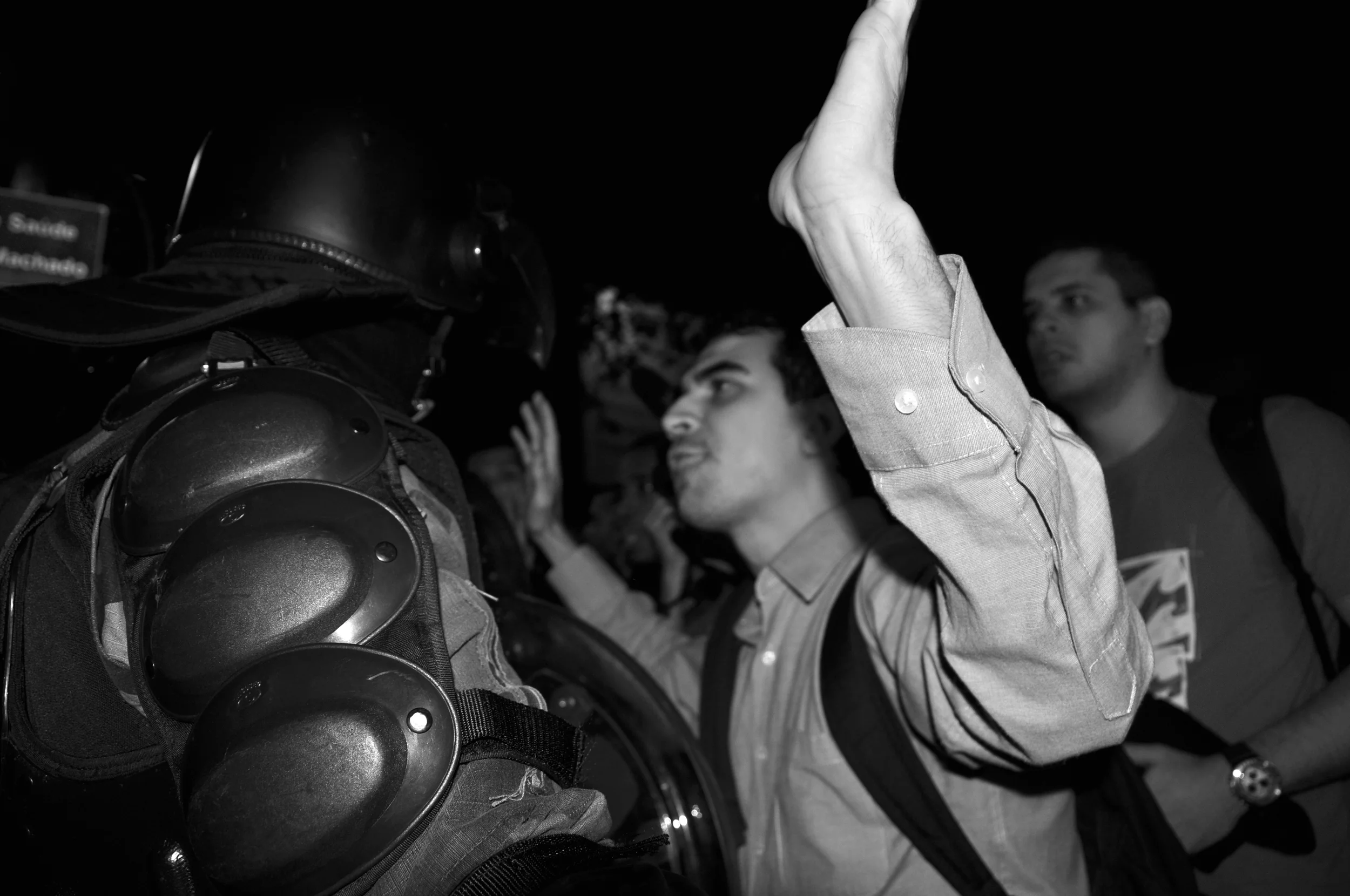




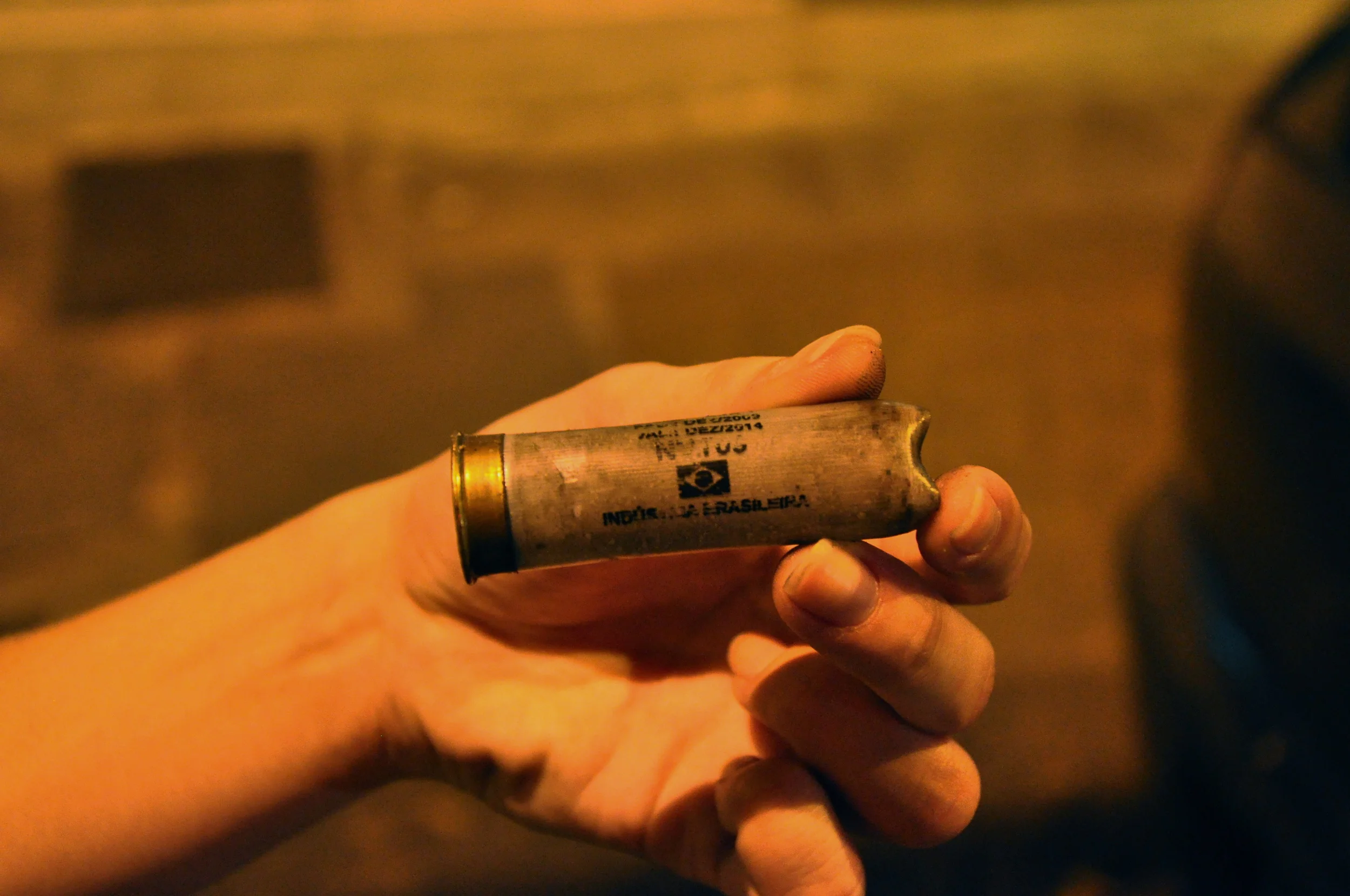


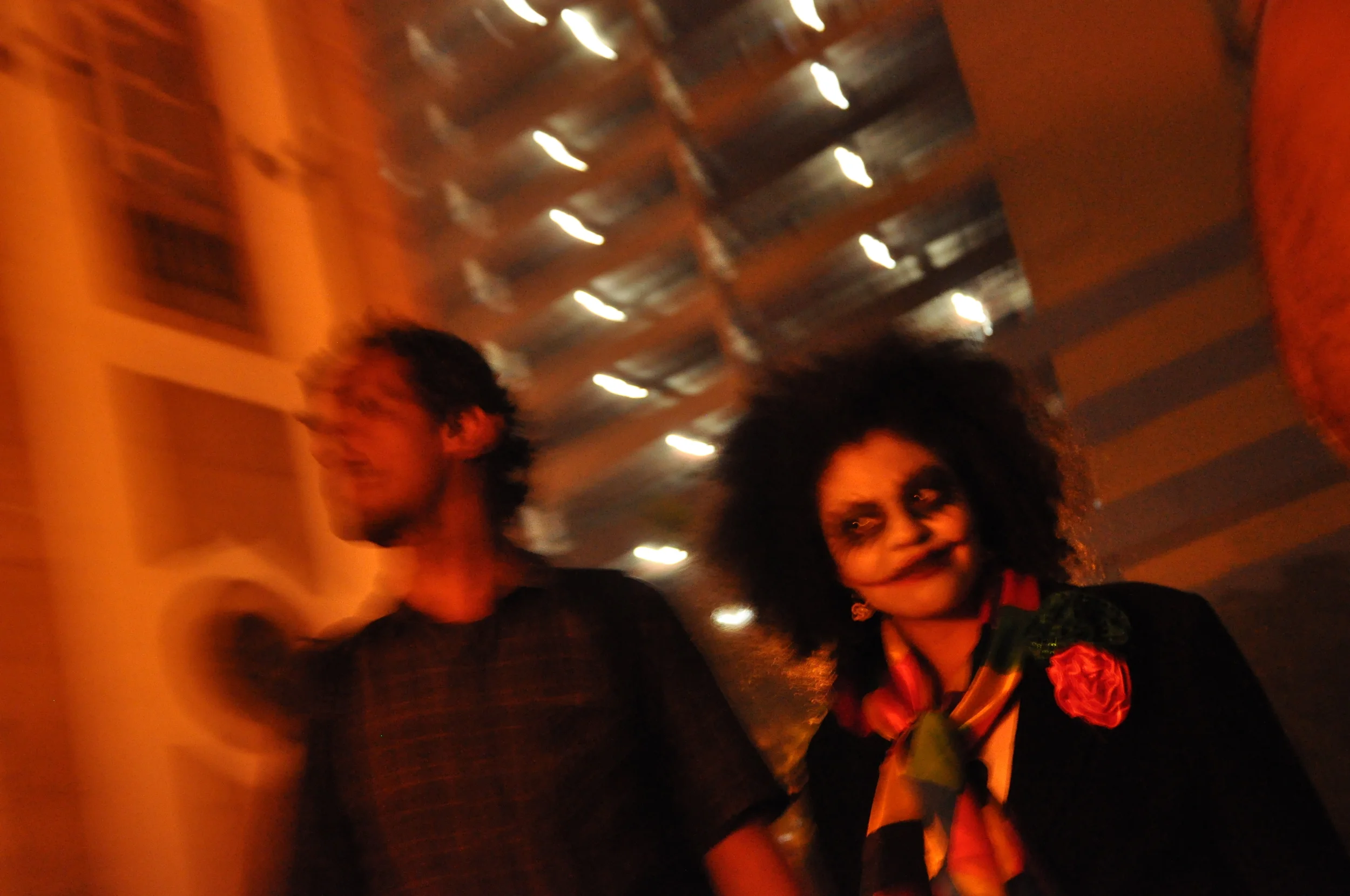




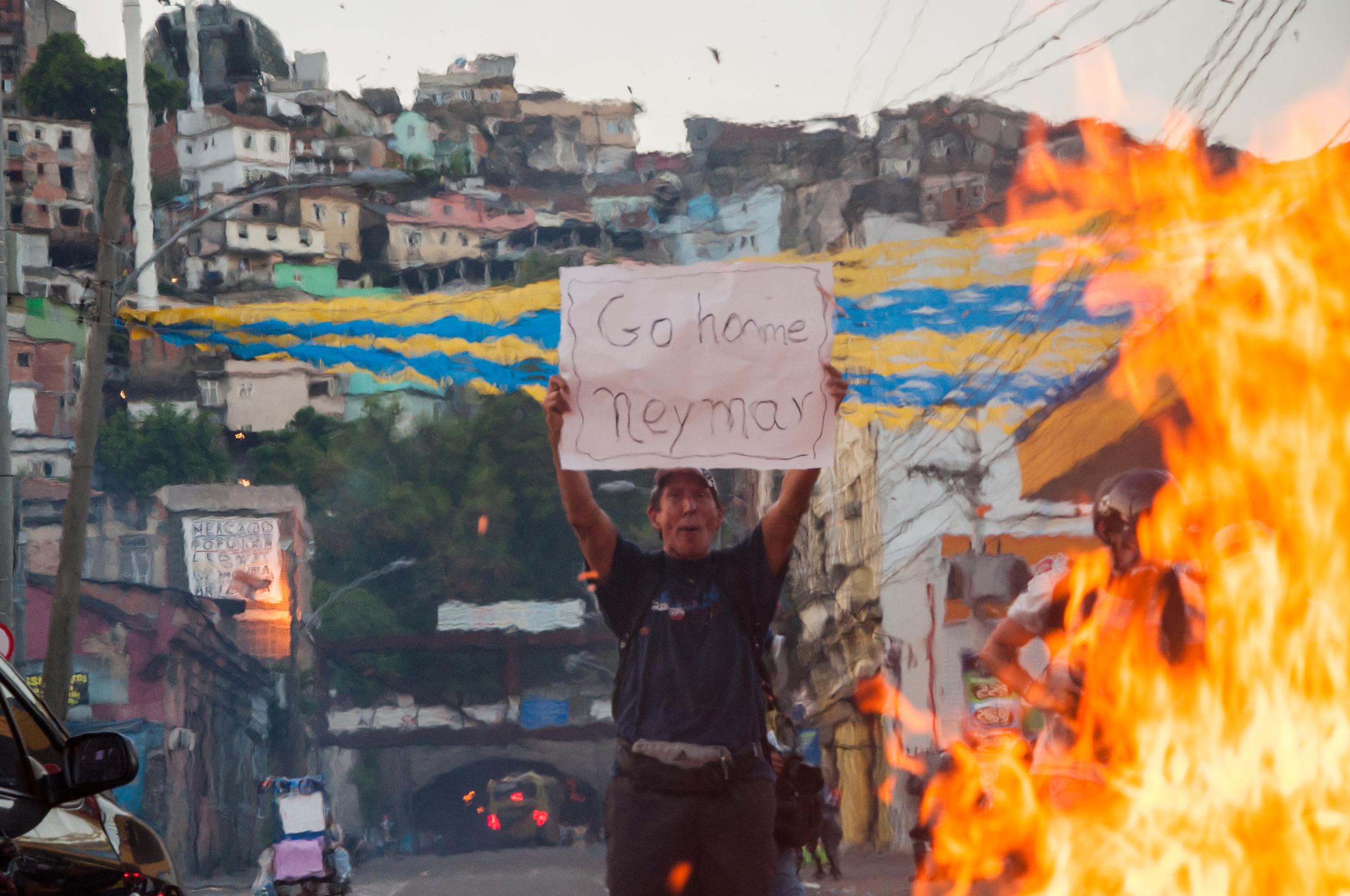
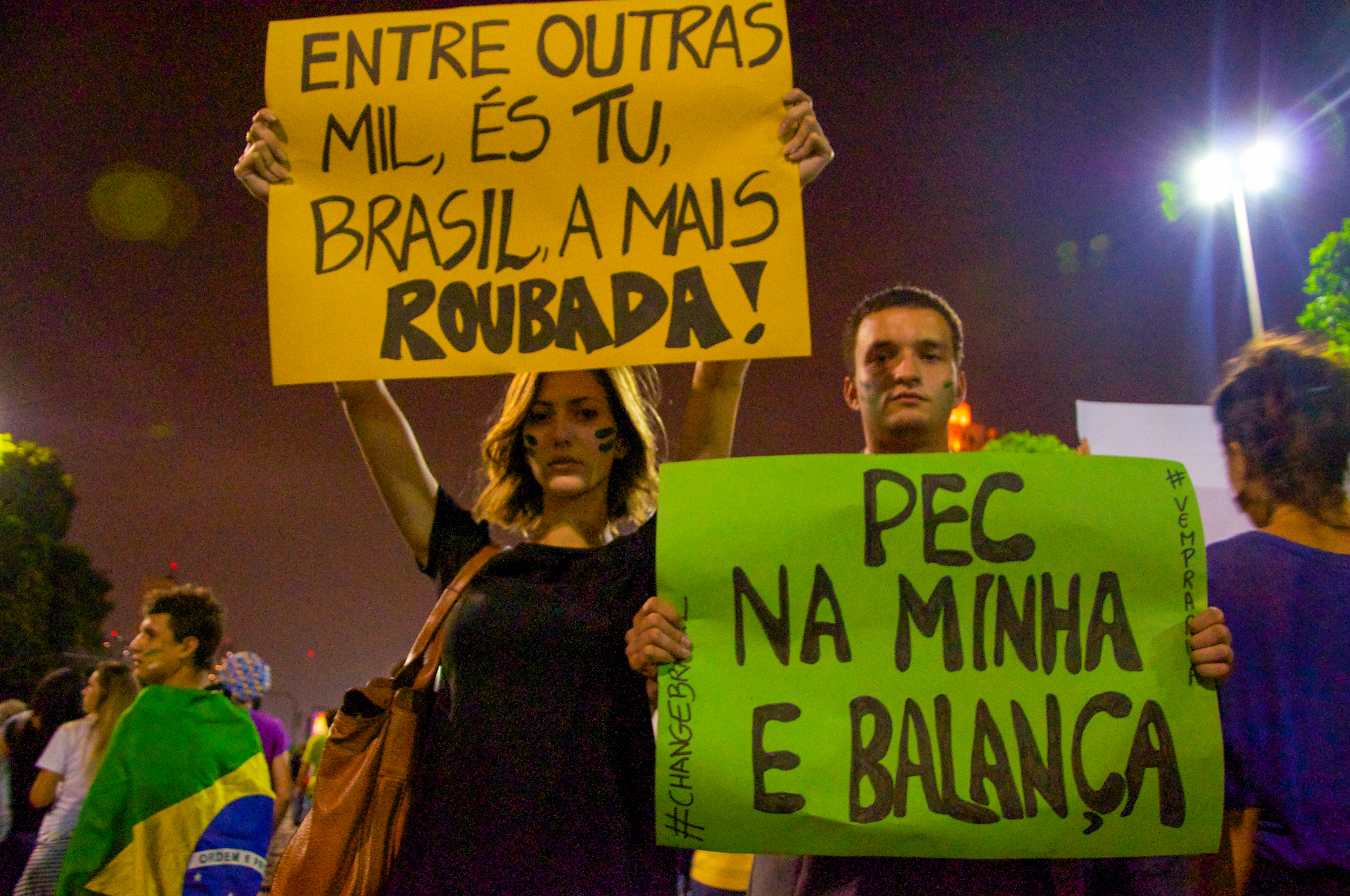

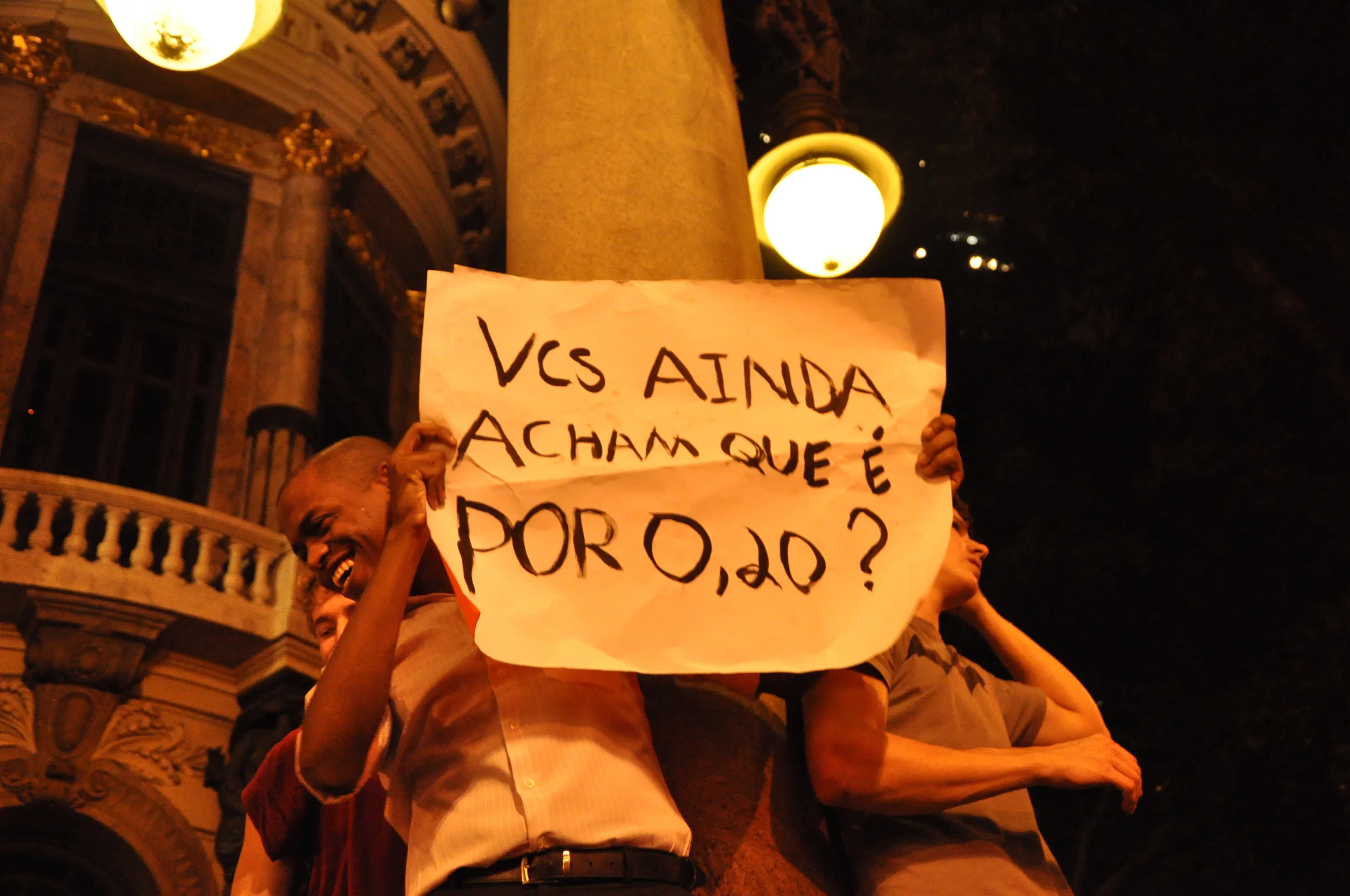




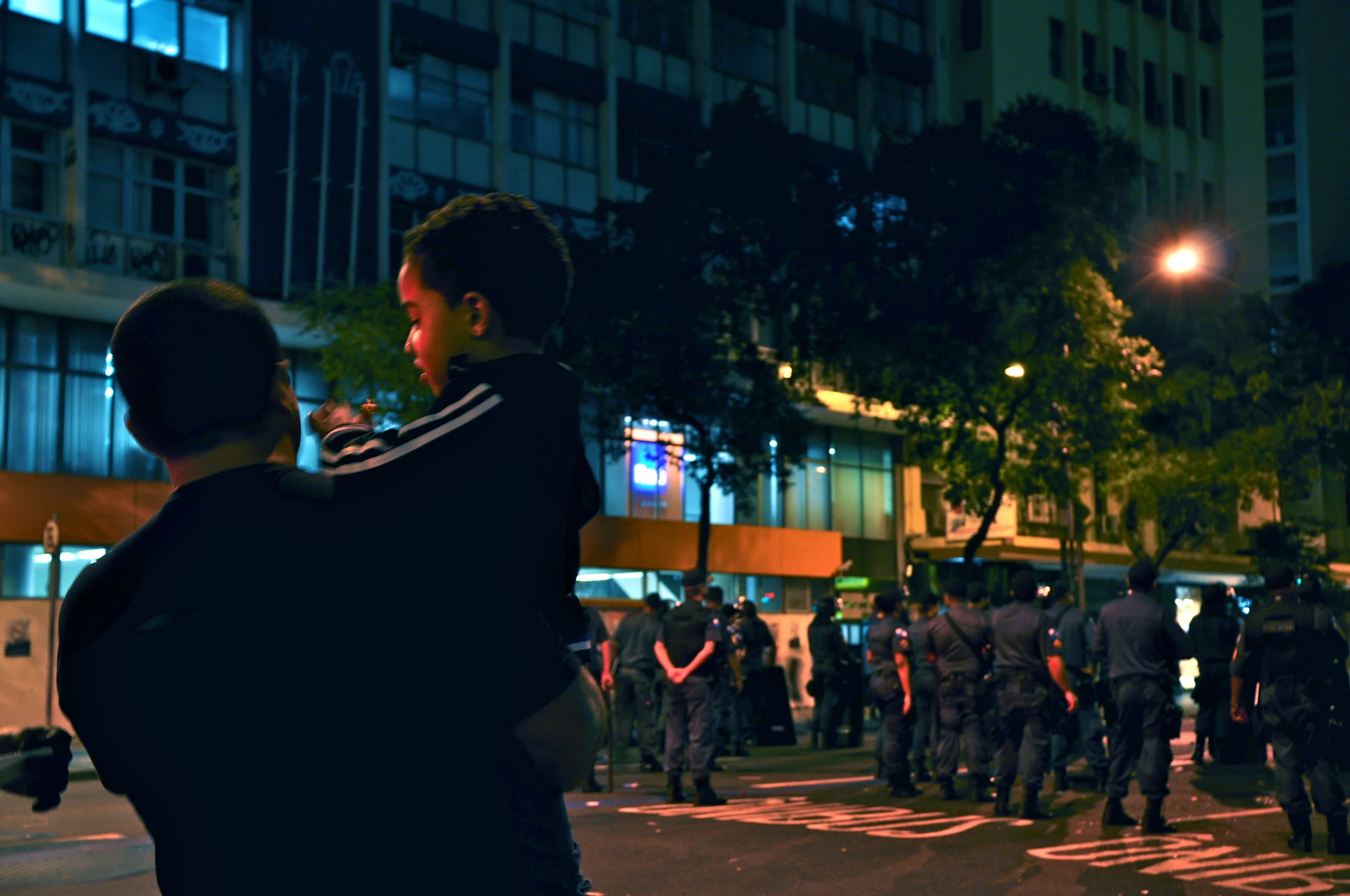
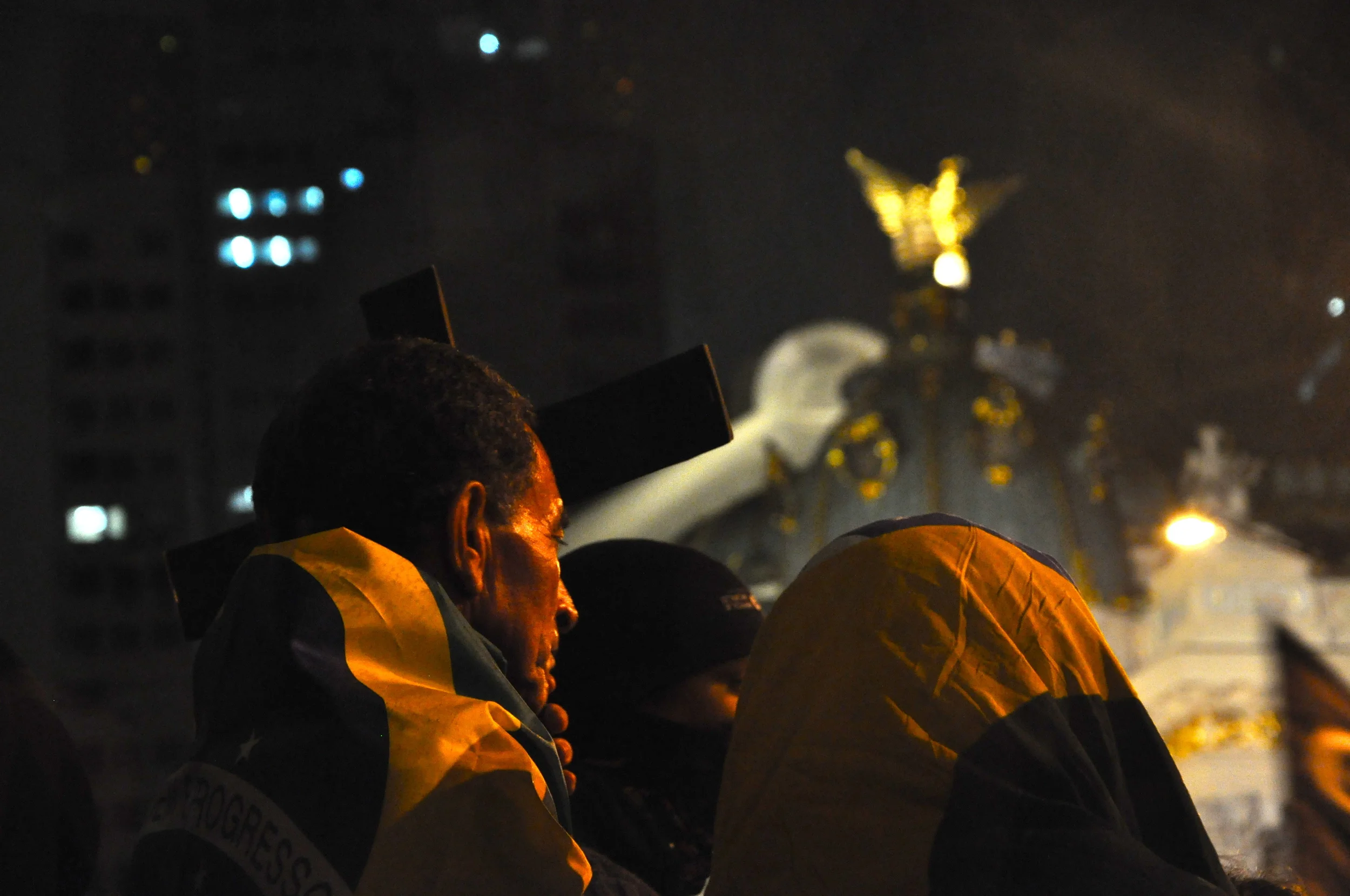


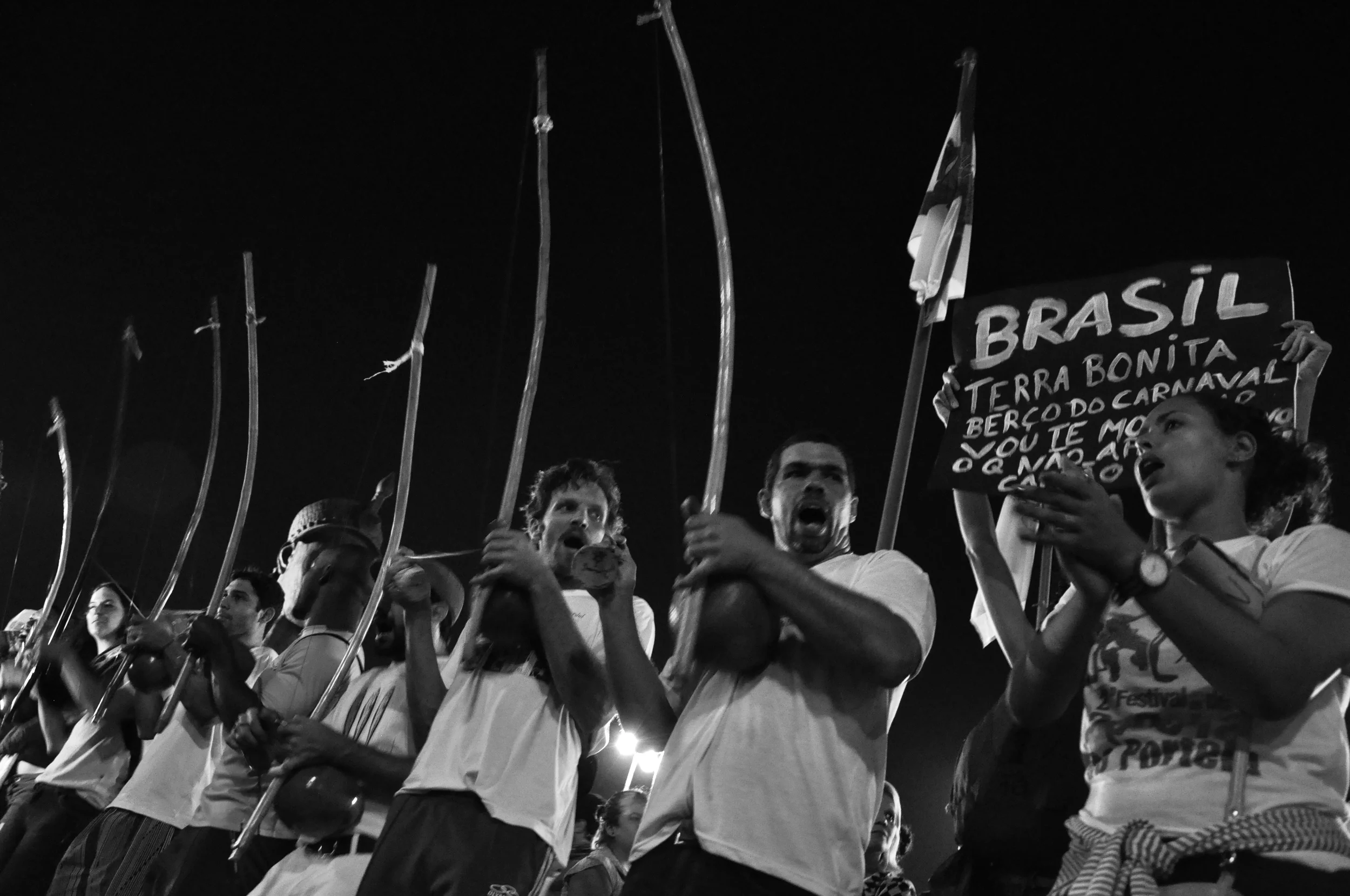




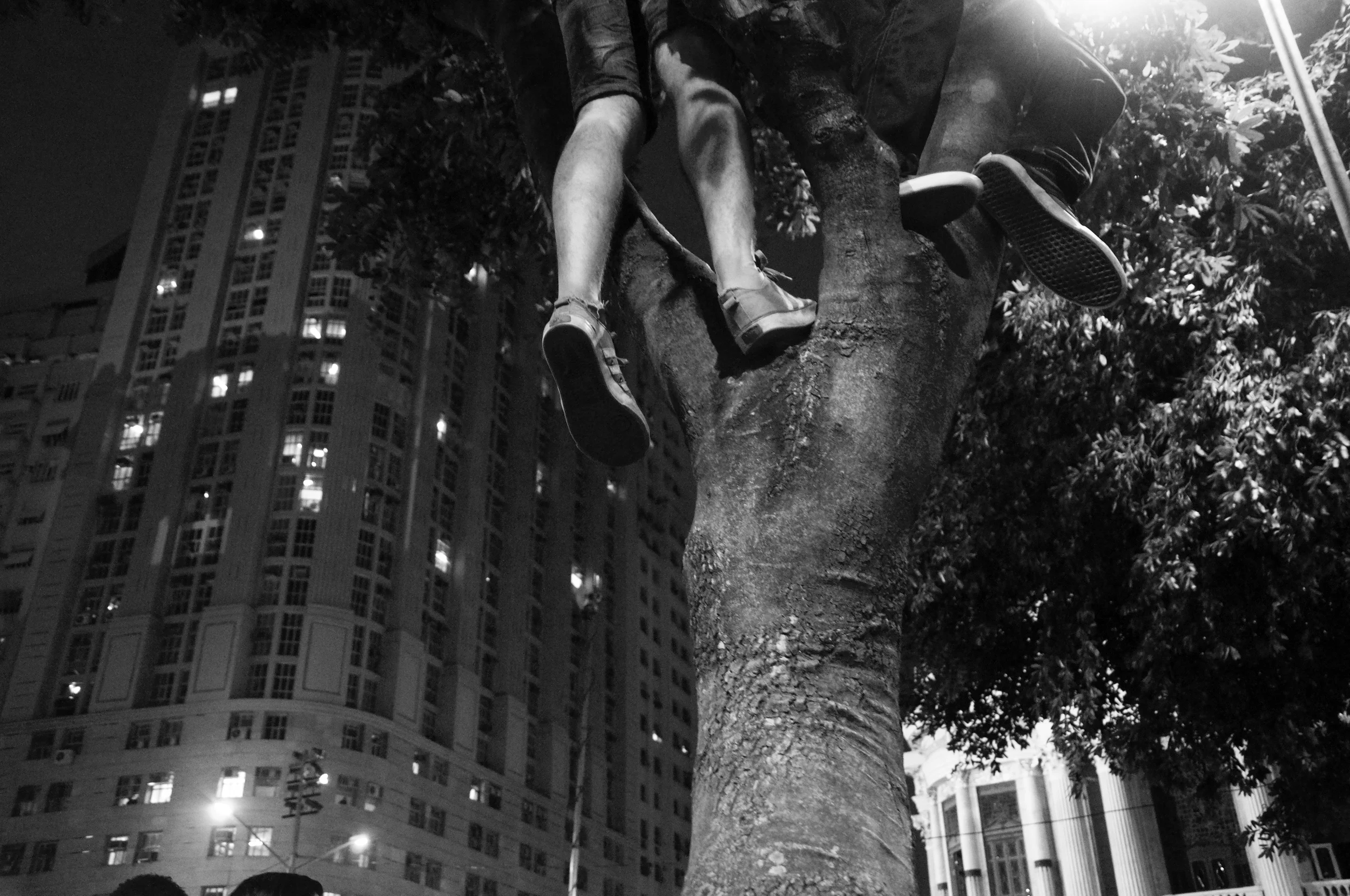

Protester holding high up a chair before smashing it into pieces on the ground, next to Rio de Janeiro's city council (Cinelândia, downtown Rio).
October 7, 2013

Young protester holding up a sign reading "We came out of Facebook" or "We left Facebook", in front of Rio's legislative assembly (ALERJ). Very symbolic and truesome, since June's massive and historic protests were all organized via social media.
June 17, 2013

Anarchist protester in front of Rio's legislative assembly (ALERJ), downtown Rio.
June 17, 2013

Street kid watching the protest while sitting on a column of Rio de Janeiro's city council (downtown). Basis of the column ironically reads "progress".
February 10, 2014

Protester contemplating the demonstration, perched on a column of Rio de Janeiro's municipal theater (next to the city council).
June 17, 2013

Protesters in front of Rio's city council (downtown).
October 7, 2013

Protester holding a sign reading "I want all the convicted in the Mensalão trial in jail" on the seafront, right next to Rio former state governor's house, in a very wealthy neighborhood of Rio (Leblon). The Mensalão scandal is the biggest corruption scandal in Brazil's history. It involved many former ministers, politicians, bankers and businessmen, and even former President Lula, some claim.
June 23, 2013

Protester projecting slogans on the main façade of Rio state governor's palace (Palácio Guanabara).
July 11, 2013

Military Police officer overseeing a peace protest in the Pavão-Pavãozinho favela (Copacabana).
In the wake of the controversial death of a young man in this favela, residents protested through Copacabana's main avenues and in the favela itself, asking for peace (hence the dressing in white), demonstrating their being fed up with "UPPs" (Pacifying Police Units, which are police units that were set up inside the favelas once drug lords had officially been chased away using armed forces) and paying a tribute to the deceased dancer.
April 27, 2014

During the peace protest in the Pavão-Pavãozinho favela (Copacabana), tension rose a bit when stones were thrown from above (not by protesters) towards police officers who were impeeding and asking protesters not to go further up the favela.
April 27, 2014

Rubber bullet cartridge found on the ground after the intervention of the "Shock" division of military police.
July 11, 2013

Protest against excessive public spending for the World Cup and for better public education, transportation and health systems, on the opening day of the World Cup.
June 12, 2014

Brazilian soccer fan observing anti-World cup protest in Copacabana, just a few minutes before the kickoff of the opening game.
June 12, 2014

Protester spray-painting a "Rebel" slogan on the façade of Rio de Janeiro's city council (in Cinelândia, downtown Rio).
October 7, 2013

Protest of on-strike street-sweepers in downtown Rio (Avenida Presidente Vargas). They started the strike during Carnival, asking for better wages and working conditions. The following day these pictures were taken, their demands were met by the authorities.
March 7, 2014

Protester next to Rio's Central train station, with the Morro da Providência favela in the background. The protest was triggered by the announcement of a bus fare raise, but also was against World Cup-related spendings and demanding better public health, education and transportation.
February 6, 2014

Anti-World Cup protest. Sign reads "We want FIFA-standard schools, metros, trains, buses, commuter boats and hospitals".
May 15, 2014.

Protester holding a sign reading "Do you still think it's about 20 cents?" in front of Rio's municipal theater (next to the city council). Bus fare raises in several Brazilian cities were the trigger of the protests, but the real underlying reasons were that the population was and still is fed up with widespread corruption, lack of justice, poor public health, education and transportation, while billions are being spent to build FIFA-standard stadiums.
June 17, 2013

Hours before the opening game of the World Cup, a bus passenger stares at a slogan which a protester has just written on the bus. Slogan reads "[World] Cup for whom?", denouncing an elitist World Cup (because of expensive tickets), massive home evictions and poor public services (health, education, transportation, infrastructure, etc.).
(Protest against excessive public spending for the World Cup and for better public education, transportation and health systems).
June 12, 2014

Peace protest in the Pavão-Pavãozinho favela (Copacabana).
In the wake of the controversial death of a young man in this favela, residents protested through Copacabana's main avenues and in the favela itself, asking for peace (hence the dressing in white), demonstrating their being fed up with "UPPs" (Pacifying Police Units, which are police units that were set up inside the favelas once drug lords had officially been chased away using armed forces) and paying a tribute to the deceased dancer.
April 27, 2014

Peace protest in the Pavão-Pavãozinho favela (Copacabana).
In the wake of the controversial death of a young man in this favela, residents protested through Copacabana's main avenues and in the favela itself, asking for peace (hence the dressing in white), demonstrating their being fed up with "UPPs" (Pacifying Police Units, which are police units that were set up inside the favelas once drug lords had officially been chased away using armed forces) and paying a tribute to the deceased dancer.
April 27, 2014

Protest against excessive public spending for the World Cup and for better public education, transportation and health systems, on the opening day of the World Cup. T-shirt reads "Fuck the [World] Cup". The underlying message is: "we don't need a World Cup, what we need is decent public health, education and transportation."
June 12, 2014

Protest against excessive public spending for the World Cup and for better public education, transportation and health systems, on the opening day of the World cup. These two protesters illustrate mingling between politicians and corporations. The man represents public authorities (his banner displays a play on words, reading "public fuck") while the bride represents Brazilian corporations involved in scandals, such as Odebrecht.
June 12, 2014

Protest of on-strike street-sweepers in front of Rio's city hall (Prefeitura). They started the strike during Carnival, asking for better wages and working conditions. The following day these pictures were taken, their demands were met by the authorities.
March 7, 2014

Protest of on-strike street-sweepers in downtown Rio (Avenida Rio Branco). They started the strike during Carnival, asking for better wages and working conditions. The following day these pictures were taken, their demands were met by the authorities.
March 7, 2014

Protest of on-strike street-sweepers in downtown Rio (Avenida Rio Branco). They started the strike during Carnival, asking for better wages and working conditions. The following day these pictures were taken, their demands were met by the authorities.
March 7, 2014

Protesters standing on the railing of Rio's city council building during demonstration of on-strike street-sweepers. They started the strike during Carnival, asking for better wages and working conditions. The following day these pictures were taken, their demands were met by the authorities.
March 7, 2014